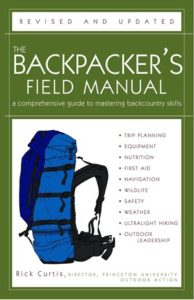Dr. Robert “Brownie” Schoene, an enormously talented, accomplished, and insightful physician who resides within the bedrock of wilderness medicine, gave a wonderful presentation about the concept of risk at the 2010 annual summer meeting of the Wilderness Medical Society. Risk is inherent in outdoor activities, whether it is part of exploration, adventure, science, or industry. I am going to summarize his approach to the topic, which is among the most important general concepts in the field, and editorialize with some of my thoughts.
When one thinks of risk related to outdoor health, it is about the possibility of suffering harm, damage, or loss. When a person is aware of the possibility of a specific risk, he or she usually weighs the risk against the possible benefits. When you hike on a slippery, snowy trail in early spring, where the trail winds over patches of ice near ledges from which a fall would cause a severe injury, is the experience worth the risk? When you ride a wave on your surfboard when the waves are intimidating and you are outside your comfort zone, is the improvement in performance worth the possibility of a tumble and possible muscle tear or broken bone? Sometimes the answer is easy. When I travel to a third world country, I always run the risk of acquiring infectious diarrhea. The benefits of the mission supersede the discomfort, and I both anticipate the risk and prepare for treatment by carrying oral rehydration supplies and appropriate antibiotics.
I love the quote from Winston Churchill that Dr. Schoene used to illustrate a risk-taker’s approach: “Risk more than you can afford to lose and learn the game!” Amen. Learn the game. Foolish risk occurs when a person expects to stay out of harm’s way, but doesn’t bother to learn, observe, prepare, anticipate, or react.
A risk seeker (sometimes foolishly) puts him- or herself in danger. A risk taker accepts the risks and proceeds into the activity, having weighed the benefits versus the risks, and a risk avoider (risk aversion) takes few or no risks, up to the point of being immobile via indecision. Because nothing in life is completely predictable, there is always a degree of uncertainty, and this factors into decisions. To the best extent possible, it makes sense to try to determine the degree of certainty, but that may oppose spontaneity, which is a component of the “spice of life.”
A major feature of any discussion about risk needs to be personal risk versus the risk of something happening to others, particularly companions, family, and friends, or any other category of individuals (or entities) for which one holds responsibility. In many circumstances, it’s acceptable to take personal risk. In a non-critical situation, placing others at risk is generally frowned upon. What if you are a coach or a guide? What is your feeling about head injuries in football? Do you feel comfortable exposing youth to these events? You can’t play football without banging heads. What about falling off a horse on the trail? Anyone who rides a horse can fall off. What about guiding an inexperienced person on a technical climb? You get the picture.
One person has commented that acceptance of risk is tantamount to admitting to have the ability to be instantly decisive in the presence of uncertainty during a moment of crisis. Perhaps, perhaps not. When one accepts risk, does one automatically have the ability to accept failure? I am not sure. I have seen many risk takers be so inclined because they do not comprehend the notion of failure. I have also seen them not be particularly smart or remotely capable of handling the situations into which they plunge. This is because they are not prepared and not of a disposition to solve problems. Rather, they create problems. Clearly, there is a complex interaction of knowledge, appreciation of the environment, disposition, personality, bravery, bravado, caution, apprehension, and fear.
To mitigate risk, even if one wishes to accept it, it is important to act responsibly, prepare for both the expected and unexpected, accept the responsibilities of risk and therefore become a more engaged and reliable participant, and be a student of historical accounts of how people were afflicted and how they responded in similar situations.
Reprinted with permission by the Author from Healthline.com


